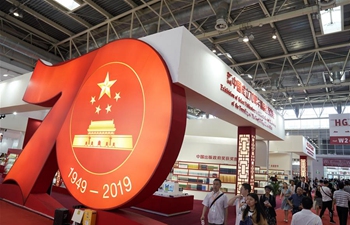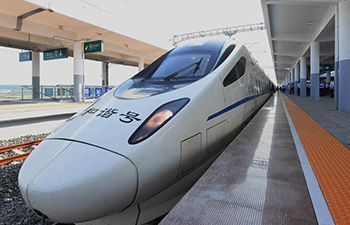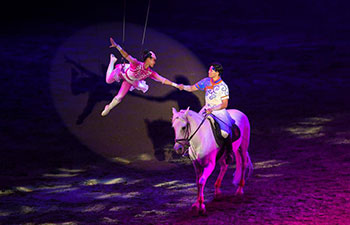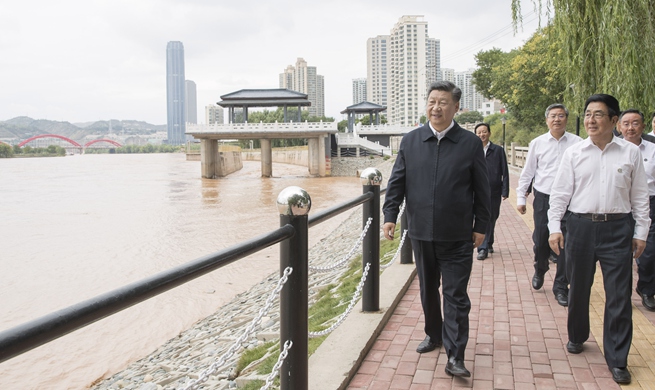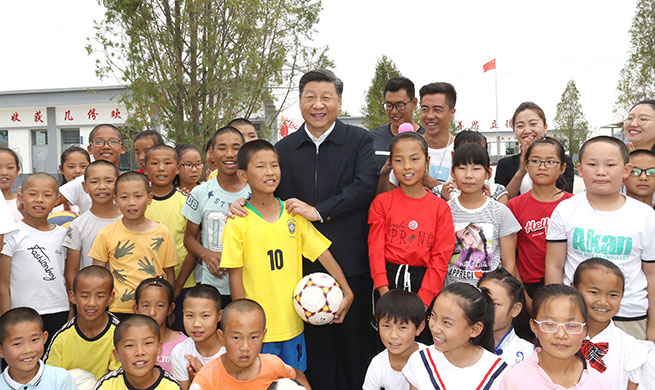ROME, Aug. 21 (Xinhua) -- Financial markets let out a big sigh of relief Wednesday, the day after the government of Italian Prime Minister Giuseppe Conte collapsed after nearly 15 months in office.
Analysts said investor confidence was buoyed by the likelihood that the next government would most likely exclude the rightwing, euro-skeptic League -- one of the two parties supporting Conte government. While in power, the League repeatedly clashed with its coalition partner, the Five-Star Movement, and with the European Commission.
"Italy is in for a rough patch over the coming weeks and that weighed markets down," Hildebrandt and Ferrar chief economist Javier Noriega told Xinhua. "But prospects that the next government could be less confrontational balanced out the initial concerns."
In trading Wednesday, the blue-chip index on Milan's Italian Stock Exchange gained nearly 2 percent after spending the whole day in positive territory. Yields on Italian government bonds also improved, with the benchmark ten-year issue ending the day at 1.33 percent, 3 percent better than the previous session, reflecting greater investor confidence in the country's capacity to pay its debts going forward.
Meanwhile, the euro currency, which analysts said had weakened over the last year due in part to worries about political and economic stability in Italy, was almost unchanged against the dollar and other major currencies.
"Look at Wednesday's market reaction as cautious optimism," Noriega said. "But a lot depends on what will happen in the coming days and weeks."
Italian President Sergio Mattarella began consultations with parties in an attempt to form a new government without holding new elections as called for by Matteo Salvini, head of the League.
The most likely combination would be for the League's coalition partner -- the populist Five-Star Movement -- the largest party in parliament, to form a new coalition with the center-left Democratic Party. The two parties are not natural allies, but Italian media reports said they are willing to work together to avoid new elections that would favor the League.
On Wednesday, the Democratic Party laid out five main conditions it says would have to be met before discussing a possible coalition with the Five-Star Movement, including a more pro-European government stance and a loosening of the harsh anti-migrant policies favored by the League.
"We don't know yet whether the Five-Star Movement will accept the pre-conditions, but after more than a year of trying to work with the League these proposals must sound like music to the ears of European commissioners," Gian Franco Gallo, a political affairs analyst working with ABS Securities in Milan, said in an interview.
Analysts said that if the Five-Star Movement and the Democratic Party fail to reach an agreement it could lead to snap elections before the end of the year, in the middle of what are expected to be contentious negotiations over the country's 2020 budget. New elections would almost surely favor the League, which has seen its popularity surge since last year's general election that produced the current parliament.
"If there are new elections this year, I think markets will give back the gains from Wednesday and much, much more," Noriega said.
